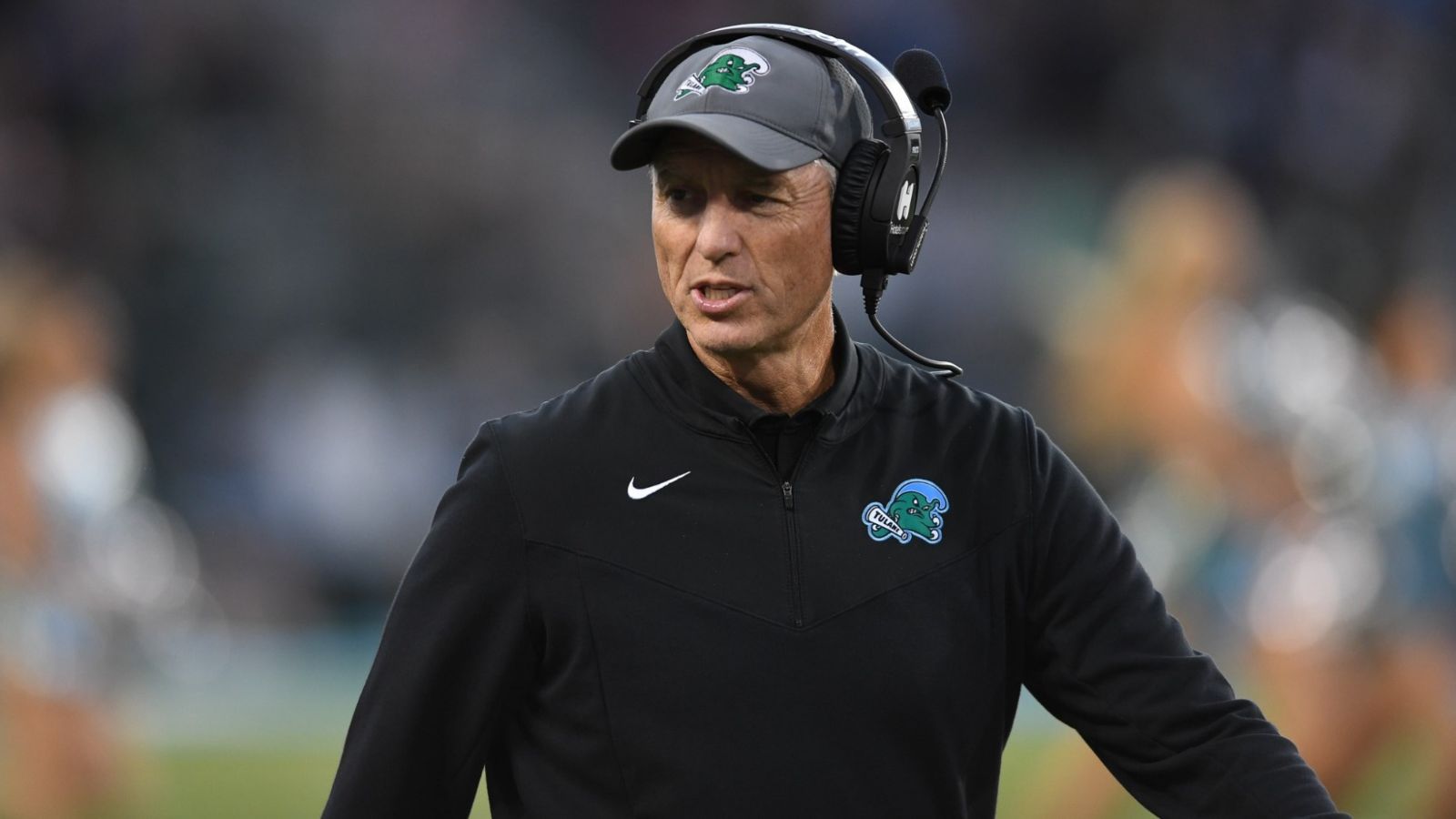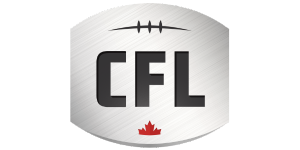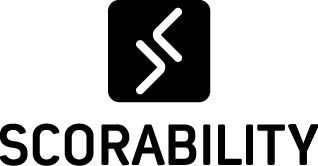
You Got To Have a Philosophy
March 28, 2023
Tulane football coach Wille Fritz has learned a lot over the course of his coaching career, which began in 1982 as a graduate assistant at Pittsburg State.
Between the first stop at his collegiate alma mater, and his most recent, as the leader of the Green Wave, Fritz is always learning, adding to his repertoire, and evolving as a leader and a football coach.
He says he’s been attending the American Football Coaches Association convention since 1983 when he was a high school assistant at his alma mater, Shawnee Mission Northwest (Kan.). But, Fritz said one of the biggest things he learned over the years came from legendary coach Don James at an AFCA convention during the late 1980s.
James served as the head coach at Kent State University and coached current Alabama head coach Nick Saban and Pittsburgh Steelers legend Jack Lambert.
“I was a young coach, as an assistant, I was taking note after note, and this thing really resonated with me,” Fritz said. “He said ‘You need to have a philosophy. If you want to be a head coach, you need to have a philosophy of what’s important to you and you got to understand why it’s important to you.’”
Fritz has been developing his own philosophy ever since and over the course of his coaching career, which has spanned over three decades, it’s paid off.
In 31 years as a head coach, Fritz has accumulated an overall head-coaching record of 236-119 and is three wins away from the 200-win mark on the NCAA level with a record of 197-114. He’s won two NJCAA National Championships and led Sam Houston State to back-to-back NCAA Division I Championship appearances. Fritz was honored as the American Football Coaches Association Regional Coach of the Year after both seasons.
Along with a list of 39 coaching principles, which includes everything from the likes of “Do not be afraid or ‘too good’ to dig a ditch” to “If you are tired, pray for strength,” Fritz follows his “Plan to Win” philosophy.
“Our kids understand a ‘Plan to Win,” Fritz said. “We have it all over our football facility, and we talk about it darn near on a daily basis.”
For Fritz and the Green Wave, it starts with taking care of the football — the No. 1 step in Fritz’s “Plan to Win.” Like most coaches, Fritz wants to win the turnover and takeaway margin. During his coaching career, his teams have accumulated an overall record of 161-23 when they win the turnover battle and they are 39-71 when they lose it. During this past season, where the Green Wave went 12-2, they went 6-0 when they won the turnover battle and were 4-2 when they lost it.
“This is the number one thing we accent in our program,” Fritz said. “I’m the ball security coach. I’m the takeaway coach. I’m after our guys on this on a daily basis and they know how important it is.”
In order to drive this point home, Fritz and his staff study the most efficient ways to attack ball carriers during film study. If you can see the ball under the carrier’s armpit, Fritz says he emphasizes “punching the pocket.” If you can’t see the ball, Fritz tells players to “rake over the top.”
When it comes to taking care of the football, Fritz also puts emphasis on handing the ball to the official with authority, having ball awareness at all times, and making sure his players are leading the way in drills. He also teaches defensive players how to protect the ball, as well as the opposite as offensive players learn how to take the ball away.
“Job security equals ball security all the time, right?” Fritz asked. “I do both of them all the time. We teach offensive players how to take the ball away. We teach defensive players how to have great ball security. It’s not just the offensive guys. It’s anybody who comes in contact with the ball.”
Fritz likes to think of his team as a 50/50 team, with equal focus on both passing and running the ball, but the longtime coach puts an extra emphasis on the running game, leading to step No. 2, “Control the Running Game.”
Rather than just emphasizing how his team runs the ball, Fritz also focuses on how his team defends it.
“I believe in running the football,” Fritz said. “I think if you’re going to have a great ballclub, and you’re going to win championships, you got to be able to run the ball where everybody in the ballpark knows you’re running the ball. You also got to stop them from running the ball when everybody knows that they’re going to be running the football.”
Fritz’s philosophy has rung true throughout his career, as he’s 202-39 when his team has won the rushing battle and Tulane was 7-1 this past season. But, as important as the running game is to Fritz, Special Teams are just as crucial.
Fritz says, the further away that you start with the football, the less likely you are to score, and in the opposite fashion, the closer you get to the endzone with the football, the more likely you are to score.
When Fritz’s teams have started between the 1 to 19-yard line on their side of the field, they’ve scored 19 percent of the time during his career. But, when his teams have started between his opponents’ 20 and 1-yard line they’ve scored 84 percent of the time.
In fact, Special Teams are so important to Fritz that he and his staff also have a point system for ‘Changing the Game.’
Players on special teams can earn a certain amount of points for special teams plays during games. For example, a kicker can earn four points for field goals of 46 yards or longer or players can earn six points if they score a touchdown. Punters can also earn three points if they place a punt within the 10-yard line.
“We show them how many points they got, where they are at, they are competing against each other and it just shows them how important that is,” Fritz said. “That’s how we figure out who our players of the game are.”
To place an even bigger accent on special teams, Fritz uses a “launch pad” to get his players settled in before they take the field for a field goal, punt, or kickoff. Fritz says it allows his staff to coach up their players and make sure all of the right personnel are ready to go.
“You know, one thing I’ve learned, they didn’t have this at JUCO or Division II, but we play all these TV games,” Fritz said. “They have breaks every time you turn around, you know, and the breaks are two and a half to three minutes long. So, you get to coach your guys up on kickoff and kickoff return every single time. We want to try and take advantage of that by getting the correct 11 guys in a launch pad and going through everything that we need to go through.”
Step No. 4 to Fritz’s “Plan to Win” is something that most coaches preach as well.
“Wave don’t beat the Wave,” Fritz said.
When Fritz’s teams have fewer pre or post-snap penalties than their opponents he’s 154-41 over the course of his career. When they’ve had more, Fritz’s teams are 82-78-1. Fritz emphasizes this step by yelling out the mantra during practice when a penalty is committed to make sure his players know how important it is.
“We want to be a disciplined football team,” Fritz said. “I can still win when you have more (penalties), but you make it more difficult on yourself.”
Fritz’s final plan in his “Plan to Win” is simple. He wants his teams to “Finish” when the time comes.
“This is a big one for us right here, win the fourth quarter,” Fritz said. “When the fourth quarter begins, we all get our fours up like everybody does but we go around and give high fours to each other and we want to encourage each other. We were just playing fast but now we’re gonna take it to another level. It’s very important to finish.”
For Fritz’s teams, this doesn’t just take place on the field during games, it takes place in practice, in the weight room, and everywhere else in the program.
The veteran coach has picked up bits and pieces of this step from many coaches throughout his career, but one of the biggest came from Joe Gibbs during his time with the Washington Redskins. Fritz said he noticed only one sign throughout the whole facility. It stated “Start behind all lines! Touch all lines! Finish past all lines! This is what a disciplined football team does.”
“When I came back, I put it up all over our facility. I need to start behind all lines, touch all lines, finish past all lines. This is what a disciplined football team does,” Fritz said. “I’ll start that little saying sometimes and my guys can finish it because they’ve heard me say it so many times. So if you are ever supposed to be behind the line, be behind it. If you are supposed to touch a line, touch the line. It’s not swiping at it. It’s touching the line. If you are supposed to finish past a line, finish past the line. We want to make sure that we do a great job of finishing everything that we start.”
Fritz has been coaching at the Division I level for 13 years, with stops at Sam Houston State, Georgia Southern and he is currently under contract with Tulane until 2030. But, Fritz’s goal was never to make it to the Division I level. With stops at places like Blinn College and Central Missouri as a head coach, along with being hired as an assistant at the high school and college level, Fritz said he was always trying to “coach where his feet were” which is his biggest piece of advice for young coaches.
“The main thing you got to always remember, which all you guys do out there, is just to be a tremendous role model and mentor to your student-athletes,” Fritz said. “Whether it’s junior high, high school, junior college, D-III, D-II, D-I, D-1 AA, or whatever it might be.
“Your destination will find you at some point in time but make sure you’re doing a great job of being where your feet are and making sure that you’re doing just a great job of being a tremendous role model.”
For more information about the AFCA, visit www.AFCA.com. For more interesting articles, check out The Insider and subscribe to our weekly email.
If you are interested in more in-depth articles and videos, please become an AFCA member. You can find out more information about membership and specific member benefits on the AFCA Membership Overview page. If you are ready to join, please fill out the AFCA Membership Application.
« « Previous PostNext Post » »
Tulane football coach Wille Fritz has learned a lot over the course of his coaching career, which began in 1982 as a graduate assistant at Pittsburg State.
Between the first stop at his collegiate alma mater, and his most recent, as the leader of the Green Wave, Fritz is always learning, adding to his repertoire, and evolving as a leader and a football coach.
He says he’s been attending the American Football Coaches Association convention since 1983 when he was a high school assistant at his alma mater, Shawnee Mission Northwest (Kan.). But, Fritz said one of the biggest things he learned over the years came from legendary coach Don James at an AFCA convention during the late 1980s.
James served as the head coach at Kent State University and coached current Alabama head coach Nick Saban and Pittsburgh Steelers legend Jack Lambert.
“I was a young coach, as an assistant, I was taking note after note, and this thing really resonated with me,” Fritz said. “He said ‘You need to have a philosophy. If you want to be a head coach, you need to have a philosophy of what’s important to you and you got to understand why it’s important to you.’”
Fritz has been developing his own philosophy ever since and over the course of his coaching career, which has spanned over three decades, it’s paid off.
In 31 years as a head coach, Fritz has accumulated an overall head-coaching record of 236-119 and is three wins away from the 200-win mark on the NCAA level with a record of 197-114. He’s won two NJCAA National Championships and led Sam Houston State to back-to-back NCAA Division I Championship appearances. Fritz was honored as the American Football Coaches Association Regional Coach of the Year after both seasons.
Along with a list of 39 coaching principles, which includes everything from the likes of “Do not be afraid or ‘too good’ to dig a ditch” to “If you are tired, pray for strength,” Fritz follows his “Plan to Win” philosophy.
“Our kids understand a ‘Plan to Win,” Fritz said. “We have it all over our football facility, and we talk about it darn near on a daily basis.”
For Fritz and the Green Wave, it starts with taking care of the football — the No. 1 step in Fritz’s “Plan to Win.” Like most coaches, Fritz wants to win the turnover and takeaway margin. During his coaching career, his teams have accumulated an overall record of 161-23 when they win the turnover battle and they are 39-71 when they lose it. During this past season, where the Green Wave went 12-2, they went 6-0 when they won the turnover battle and were 4-2 when they lost it.
“This is the number one thing we accent in our program,” Fritz said. “I’m the ball security coach. I’m the takeaway coach. I’m after our guys on this on a daily basis and they know how important it is.”
In order to drive this point home, Fritz and his staff study the most efficient ways to attack ball carriers during film study. If you can see the ball under the carrier’s armpit, Fritz says he emphasizes “punching the pocket.” If you can’t see the ball, Fritz tells players to “rake over the top.”
When it comes to taking care of the football, Fritz also puts emphasis on handing the ball to the official with authority, having ball awareness at all times, and making sure his players are leading the way in drills. He also teaches defensive players how to protect the ball, as well as the opposite as offensive players learn how to take the ball away.
“Job security equals ball security all the time, right?” Fritz asked. “I do both of them all the time. We teach offensive players how to take the ball away. We teach defensive players how to have great ball security. It’s not just the offensive guys. It’s anybody who comes in contact with the ball.”
Fritz likes to think of his team as a 50/50 team, with equal focus on both passing and running the ball, but the longtime coach puts an extra emphasis on the running game, leading to step No. 2, “Control the Running Game.”
Rather than just emphasizing how his team runs the ball, Fritz also focuses on how his team defends it.
“I believe in running the football,” Fritz said. “I think if you’re going to have a great ballclub, and you’re going to win championships, you got to be able to run the ball where everybody in the ballpark knows you’re running the ball. You also got to stop them from running the ball when everybody knows that they’re going to be running the football.”
Fritz’s philosophy has rung true throughout his career, as he’s 202-39 when his team has won the rushing battle and Tulane was 7-1 this past season. But, as important as the running game is to Fritz, Special Teams are just as crucial.
Fritz says, the further away that you start with the football, the less likely you are to score, and in the opposite fashion, the closer you get to the endzone with the football, the more likely you are to score.
When Fritz’s teams have started between the 1 to 19-yard line on their side of the field, they’ve scored 19 percent of the time during his career. But, when his teams have started between his opponents’ 20 and 1-yard line they’ve scored 84 percent of the time.
In fact, Special Teams are so important to Fritz that he and his staff also have a point system for ‘Changing the Game.’
Players on special teams can earn a certain amount of points for special teams plays during games. For example, a kicker can earn four points for field goals of 46 yards or longer or players can earn six points if they score a touchdown. Punters can also earn three points if they place a punt within the 10-yard line.
“We show them how many points they got, where they are at, they are competing against each other and it just shows them how important that is,” Fritz said. “That’s how we figure out who our players of the game are.”
To place an even bigger accent on special teams, Fritz uses a “launch pad” to get his players settled in before they take the field for a field goal, punt, or kickoff. Fritz says it allows his staff to coach up their players and make sure all of the right personnel are ready to go.
“You know, one thing I’ve learned, they didn’t have this at JUCO or Division II, but we play all these TV games,” Fritz said. “They have breaks every time you turn around, you know, and the breaks are two and a half to three minutes long. So, you get to coach your guys up on kickoff and kickoff return every single time. We want to try and take advantage of that by getting the correct 11 guys in a launch pad and going through everything that we need to go through.”
Step No. 4 to Fritz’s “Plan to Win” is something that most coaches preach as well.
“Wave don’t beat the Wave,” Fritz said.
When Fritz’s teams have fewer pre or post-snap penalties than their opponents he’s 154-41 over the course of his career. When they’ve had more, Fritz’s teams are 82-78-1. Fritz emphasizes this step by yelling out the mantra during practice when a penalty is committed to make sure his players know how important it is.
“We want to be a disciplined football team,” Fritz said. “I can still win when you have more (penalties), but you make it more difficult on yourself.”
Fritz’s final plan in his “Plan to Win” is simple. He wants his teams to “Finish” when the time comes.
“This is a big one for us right here, win the fourth quarter,” Fritz said. “When the fourth quarter begins, we all get our fours up like everybody does but we go around and give high fours to each other and we want to encourage each other. We were just playing fast but now we’re gonna take it to another level. It’s very important to finish.”
For Fritz’s teams, this doesn’t just take place on the field during games, it takes place in practice, in the weight room, and everywhere else in the program.
The veteran coach has picked up bits and pieces of this step from many coaches throughout his career, but one of the biggest came from Joe Gibbs during his time with the Washington Redskins. Fritz said he noticed only one sign throughout the whole facility. It stated “Start behind all lines! Touch all lines! Finish past all lines! This is what a disciplined football team does.”
“When I came back, I put it up all over our facility. I need to start behind all lines, touch all lines, finish past all lines. This is what a disciplined football team does,” Fritz said. “I’ll start that little saying sometimes and my guys can finish it because they’ve heard me say it so many times. So if you are ever supposed to be behind the line, be behind it. If you are supposed to touch a line, touch the line. It’s not swiping at it. It’s touching the line. If you are supposed to finish past a line, finish past the line. We want to make sure that we do a great job of finishing everything that we start.”
Fritz has been coaching at the Division I level for 13 years, with stops at Sam Houston State, Georgia Southern and he is currently under contract with Tulane until 2030. But, Fritz’s goal was never to make it to the Division I level. With stops at places like Blinn College and Central Missouri as a head coach, along with being hired as an assistant at the high school and college level, Fritz said he was always trying to “coach where his feet were” which is his biggest piece of advice for young coaches.
“The main thing you got to always remember, which all you guys do out there, is just to be a tremendous role model and mentor to your student-athletes,” Fritz said. “Whether it’s junior high, high school, junior college, D-III, D-II, D-I, D-1 AA, or whatever it might be.
“Your destination will find you at some point in time but make sure you’re doing a great job of being where your feet are and making sure that you’re doing just a great job of being a tremendous role model.”
For more information about the AFCA, visit www.AFCA.com. For more interesting articles, check out The Insider and subscribe to our weekly email.
If you are interested in more in-depth articles and videos, please become an AFCA member. You can find out more information about membership and specific member benefits on the AFCA Membership Overview page. If you are ready to join, please fill out the AFCA Membership Application.
















